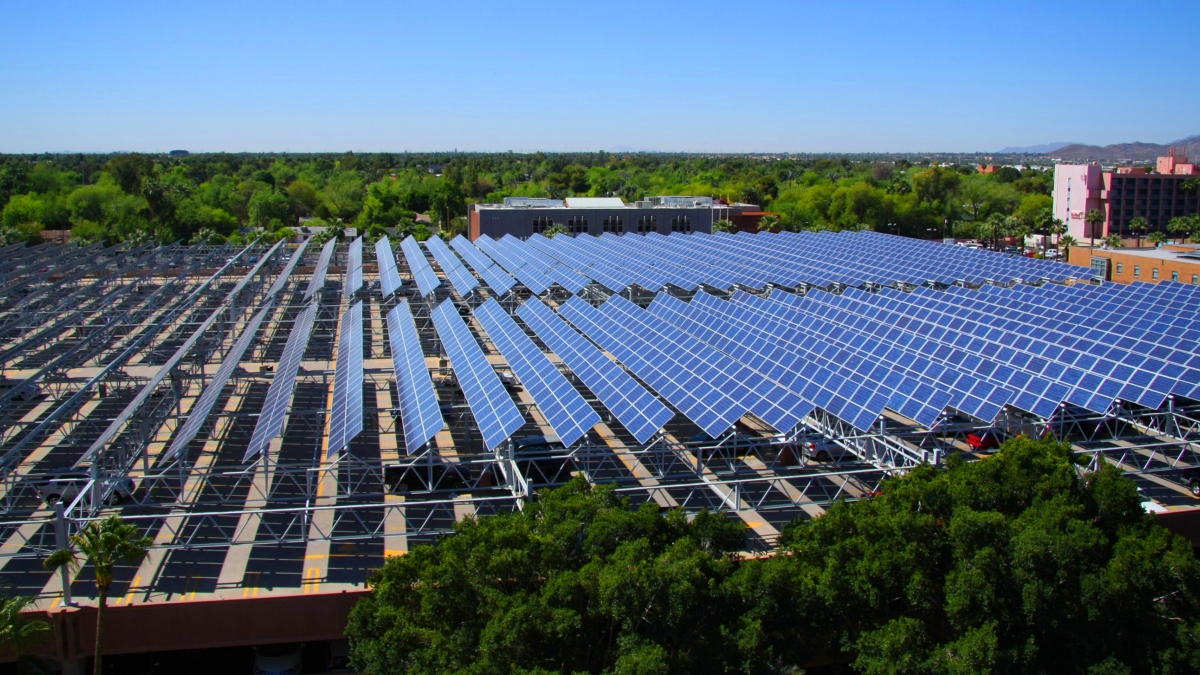Editor’s note: This story is featured in the 2023 year in review.
Arizona State University ranked among the top five research institutions without a medical school for the first time in fiscal year 2022 for inventions disclosed, U.S. patents secured, patent licenses and option deals closed, and startups launched, according to the Association of University Technology Managers' latest survey of 180 reporting institutions on licensing activities at U.S. universities and research institutions.
ASU and Massachusetts Institute of Technology are the only two institutions without medical schools out of 63 institutions without medical schools to rank in the top five across all four categories.
In fiscal year 2022, ASU ranked higher than the previous fiscal year for two of the four key metrics among its peer group of institutions without medical schools, according to AUTM’s survey data.
ASU rose one spot, to fourth, for inventions disclosed, and two spots, to fifth, for license and option deals closed compared with the previous fiscal year. ASU remained in the second spot for startups launched in fiscal year 2022 and, by a slim margin, dropped one spot, to fourth, for U.S. patents issued.
“As the ASU research enterprise has exponentially grown, so too has the university’s ability to generate real-world solutions for societal impact,” said Kyle Siegal, executive director and chief patent counsel for Skysong Innovations.
Skysong Innovations, ASU’s exclusive technology transfer and intellectual property management organization, helps translate research into impact by protecting intellectual property developed in ASU labs and negotiating licensing deals with commercial partners who advance the technologies and develop solutions for society.
The organization, fueled by ASU’s growing research enterprise, has cumulatively secured over 1,550 U.S. patents for ASU and closed over 1,400 license or option deals with commercial partners during its years of service to ASU. Skysong Innovations has also facilitated more than 230 ASU startups that have collectively attracted nearly $1.3 billion in external funding.
“As ASU’s research enterprise expands exponentially, so does our ability to generate real-world solutions,” said Sally C. Morton, executive vice president of ASU’s Knowledge Enterprise. “We are not merely creating knowledge; we are successfully translating it into tangible advancements for the betterment of communities.”
During fiscal year 2022, ASU had 305 invention disclosures, which is an innovation submitted by an ASU researcher for potential commercialization. There were 167 U.S. patents issued for ASU technologies during fiscal year 2022, 75 patent licenses and option deals closed during that time.
ASU startups launched from a vast spectrum of industries in fiscal year 2022. Here are two examples:
• Beyond Silicon was among the 21 ASU startups established in fiscal year 2022 to develop a drop-in replacement for silicon photovoltaic module manufacturing, which results in 30% more power compared to existing silicon cells used in solar panels. Beyond Silicon holds the exclusive license for the ASU intellectual property developed by Assistant Research Professor Zhengshan (Jason) Yu and Professor and Vice Dean for Research and Innovation Zachary Holman, both in the School of Electrical, Computer and Energy Engineering.
• Exodigm Biosciences Inc. was founded in 2022 by Hao Yan, director of ASU’s Biodesign Center for Molecular Design and Biomimetics, and Rizal Hariadi, assistant professor in the Departments of Physics, Mechanisms of Evolution, Center for Biological Physics and Biodesign Center for Molecular Design and Biomimetics. General Inception is also an institutional cofounder that brings science-based companies specialized expertise, operational resources and capital. Exodigm is developing a biologically inspired DNA nanodevice that provides a unique, improved way of sensing molecules within cells for medical diagnostics and other purposes. Exodigm holds an exclusive license from Skysong Innovations.
More Science and technology

The Sun Devil who revolutionized kitty litter
If you have a cat, there’s a good chance you’re benefiting from the work of an Arizona State University alumna. In honor of Women's History Month, we're sharing her story.A pioneering chemist…

ASU to host 2 new 51 Pegasi b Fellows, cementing leadership in exoplanet research
Arizona State University continues its rapid rise in planetary astronomy, welcoming two new 51 Pegasi b Fellows to its exoplanet research team in fall 2025. The Heising-Simons Foundation awarded the…

ASU students win big at homeland security design challenge
By Cynthia GerberArizona State University students took home five prizes — including two first-place victories — from this year’s Designing Actionable Solutions for a Secure Homeland student design…


